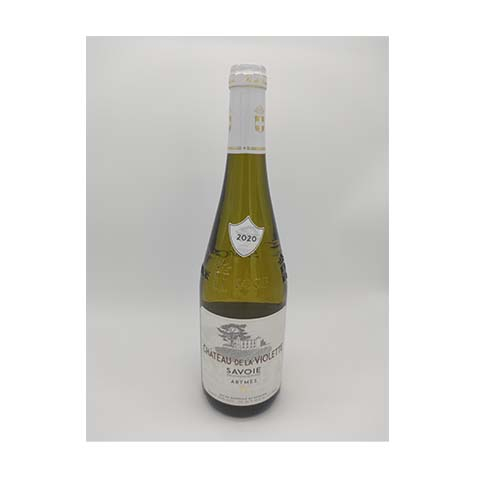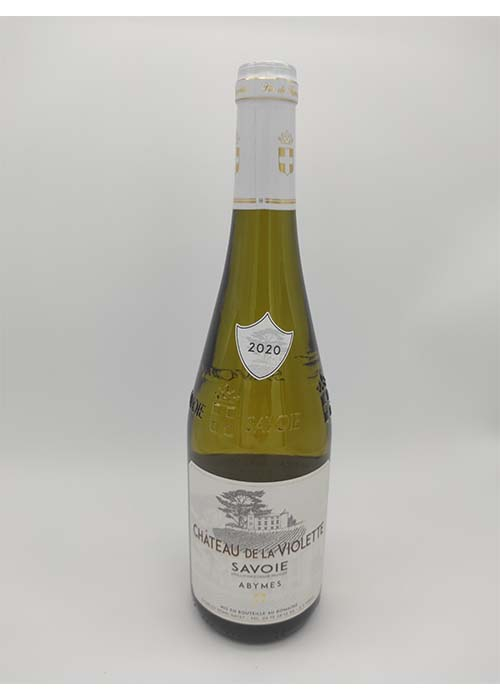Abymes Chateau de la Violette
Terroir and soil:
The vineyard is planted on stony soils from erosion and limestone boulders. The soils are composed with clays and limestone. Due to climate of Savoy, the vineyard is limited to the best exposed slopes. These characteristics explain the fine minerality in our wines.
Grapes’ variety:
100% Jacquère
Wine making:
Direct pressing of the grape and then wine vinification at low temperature. Raised on the lees in stainless steel tanks. No malolactic fermentation.
Taste:
Pale yellow wine with green highlights. This wine is very easy to drink, light bodied with flavours of white flowers and citrus fruits. Light and fruity, this wine is mineral, crisp and fruity.
Gastronomy:
The minerality of this wine goes perfectly with oysters and also accompanied the great Savoyard specialties (fondue, tartiflette, raclette). It is also well appreciated on aperitif.
Conservation:
The wine will be especially appreciated in the first year for its freshness. Can be kept one year.
Serving temperature:
7-10 ° C.


The vineyard is entirely grassed and managed in a reasoned manner to limit treatments as much as possible. Throughout the year, the team strives to take particular care in monitoring the vines, maturities and harvest. The estate has been committed for several years to a reasoned cultivation process of the vine.
These efforts were also rewarded in 2019 with the obtaining of the High Environmental Value Level 3 label, which justifies agriculture that is more respectful of the environment, governed by very rigorous specifications, created and controlled by the French state.
This environmental certification of agricultural holdings is made up of three different levels, the requirements of which are articulated around four themes: the development and maintenance of biodiversity, a reasoned phytosanitary strategy, controlled fertilizer management and adapted water resources management.








 Discover more on EUFoodD2Japan !
Discover more on EUFoodD2Japan !